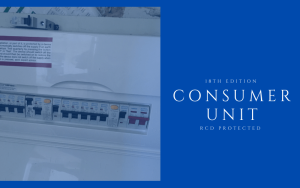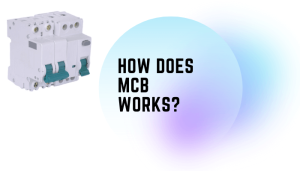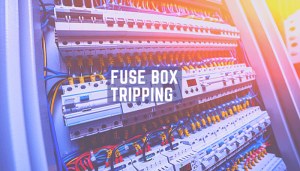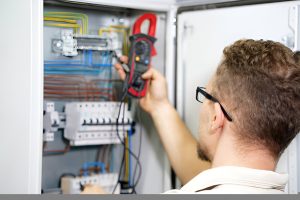When considering the cost to install a boiler, homeowners and property managers must navigate various factors. Prices range from $2,500 to $5,000, influenced by boiler type, heating system configuration, and labor rates. Additional expenses like pipework upgrades or smart thermostats can also impact the budget. Understanding these details ensures informed decisions.
Key Takeaways
- Boiler installation costs range from $1,800 to $5,000, depending on the boiler type and size.
- Labor and installation charges vary based on complexity and geographic location.
- Additional costs may include pipework updates, system upgrades, and smart control installations.
- The removal and disposal of old boilers also contribute to the overall installation cost.
- Accurate cost estimation requires a professional assessment tailored to specific property needs.
Introduction: Understanding Boiler Installation Costs
Installing a boiler in your home or business can be a significant investment, and understanding the associated costs is crucial for making informed decisions. The total cost of boiler installation can vary widely depending on several factors, including the type of boiler, the complexity of the installation, and the rates charged by the installation service.
Property owners need to grasp the initial financial outlay involved, which not only covers the purchase of the boiler itself but also installation labor, potential modifications to existing systems, and any additional components required for a fully functional setup.
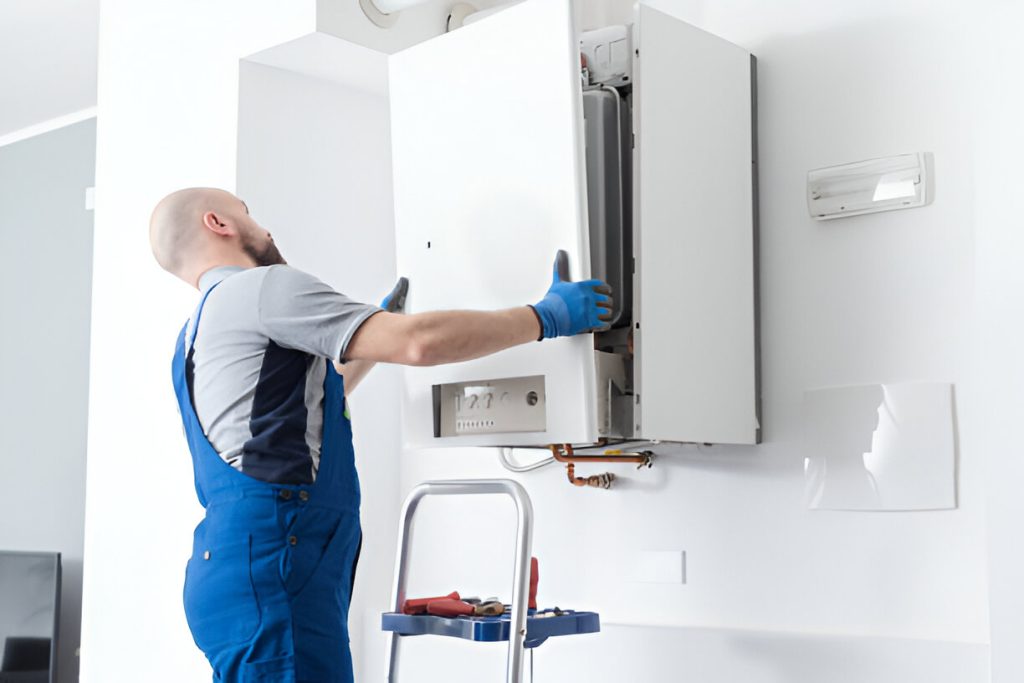
Initial costs can be deceptive, as the choice of boiler impacts long-term savings on energy bills due to varying efficiencies. For instance, while upfront expenses for more advanced, energy-efficient models are higher, they can offer considerable cost savings over time through reduced energy consumption.
Thus, it is imperative to balance upfront installation costs against long-term benefits and savings. Accurately estimating these costs requires detailed knowledge of both product options and installation requirements, necessitating consultations with professionals who can provide precise calculations and advice tailored to specific needs and circumstances.
This informed approach ensures optimal investment and operational efficiency.
Factors Affecting Boiler Installation Costs
Several variables influence the total expense of boiler installation, each playing a pivotal role in the final cost to the homeowner or business. These factors range from the complexity of the installation process to the geographical location, and understanding these nuances is essential for accurate financial planning.
Here is a breakdown of some key factors:
| Factor | Description |
|---|---|
| Boiler Size and Power | Larger and more powerful boilers cost more due to their higher output and efficiency. |
| Installation Complexity | Complex installations require additional labor and materials, increasing costs. |
| Existing Infrastructure | Upgrades or modifications to existing systems can significantly affect the price. |
| Geographic Location | Installation costs vary by region due to differences in labor rates and material costs. |
| Regulatory Compliance | Adhering to local building codes and regulations may necessitate additional work or specific components. |
Each factor should be analyzed in detail during the planning stage of a boiler installation project. This preemptive assessment helps in forecasting the necessary budget and selecting the appropriate boiler system that aligns with both operational needs and financial constraints. An accurate understanding and consideration of these factors ensure that the project proceeds smoothly without unexpected financial burdens.
Types of Boilers and Their Installation Costs
The cost of installing a boiler can vary significantly depending on the type of boiler selected.
Combi boilers, system boilers, and conventional boilers each come with distinct installation requirements and expense implications.
Understanding these variations is essential for homeowners to make informed financial decisions regarding their boiler installation.
Combi Boilers
Combi boilers, a compact and efficient heating solution, offer a popular choice for many homeowners seeking to maximize space and energy efficiency. These systems combine water heating and central heating in one unit, eliminating the need for a separate hot water storage cylinder.
This integration not only saves space but also reduces heat loss, making combi boilers particularly suitable for smaller properties where space is at a premium.
The installation cost of combi boilers varies depending on factors such as brand, capacity, and any additional features. Typically, prices range from approximately $2,500 to $5,000, which includes the cost of the unit itself and professional installation.
High-end models with greater efficiency and more advanced features can cost significantly more.
When considering a combi boiler, it is crucial to evaluate the output rating, which should align with the heating and hot water demands of your household. An undersized boiler may be cheaper but can struggle to meet demand, whereas an oversized one may waste energy and increase operational costs.
Professional assessment is recommended to determine the most appropriate combi-boiler model for your home’s specific needs, ensuring optimal performance and efficiency.
System Boilers
While combi boilers are well-suited for smaller spaces, system boilers represent an excellent alternative for medium to large-sized homes that demand higher hot water needs. Unlike combi boilers that heat water on demand, system boilers store hot water in a cylinder, allowing for simultaneous usage across multiple taps without a reduction in water pressure. This makes them ideal for homes with multiple bathrooms or increased water usage requirements.
System boilers involve a more complex installation process compared to combi boilers because they require the integration of a separate cylinder. However, they do not need a cold water tank, simplifying their setup relative to conventional boilers.
The cost of installing a system boiler typically ranges from $3,500 to $5,000, depending on the boiler’s capacity and the complexity of the installation. Key factors influencing the cost include the quality of the boiler, the size of the hot water cylinder, and any additional components like pumps and controls that may be necessary.
Furthermore, labor costs can vary significantly based on geographical location and the specific requirements of the installation site. When considering a system boiler, it is crucial to evaluate both up-front installation costs and long-term energy efficiency to ensure optimal financial and functional performance.
Conventional Boilers
Moving on to conventional boilers, these units are typically suited for larger homes with room for additional water storage facilities. Known also as regular or heat-only boilers, they require a cold water tank usually located in the loft and a hot water cylinder housed in the airing cupboard. This setup benefits from providing hot water from multiple taps at the same time without a reduction in pressure.
Conventional boilers are often recommended for homes where water usage is high, or where existing systems already use this configuration. Installation costs can vary significantly based on factors such as capacity, whether additional pipework is needed, and the complexity of the system.
Here is a breakdown of typical installation costs associated with conventional boilers:
| Boiler Type | Average Cost (USD) | Installation Complexity |
|---|---|---|
| Small Conventional | $1,800 – $2,500 | Moderate |
| Medium Conventional | $2,500 – $3,500 | High |
| Large Conventional | $3,500 – $5,000 | Very High |
Choosing the right size and understanding the specific installation requirements are crucial. It is advisable to consult with a professional to determine the most appropriate boiler for your needs and to ensure a cost-effective and efficient installation.
Labour and Installation Charges
The cost of labor and installation for a boiler can vary significantly depending on several factors, including the complexity of the installation, the type of boiler, and the region.
Labor costs are influenced by the duration and intricacies required to set up the new system effectively. Typically, simpler installations in areas with a lower cost of living might be less expensive, whereas more complex setups in metropolitan areas could drive up costs.
To understand better, consider these points:
- Type of Installation: Whether it’s a straightforward replacement or a full system overhaul, the nature of the job significantly impacts the labor hours and skills required.
- Experience of Technicians: Skilled, certified professionals often command higher rates, but their expertise can lead to quicker and more reliable installations.
- Local Market Rates: Labor costs are subject to regional variations, reflecting the local economic conditions and average wages.
- Access and Complexity: Difficult access to the installation site or the need for additional modifications (like pipework or structural changes) can increase the workload and, thus, the cost.
Efficiently managing these aspects is crucial for a cost-effective and successful boiler installation, ensuring both the performance and durability of the system.
Additional Costs to Consider
When estimating the total cost of installing a new boiler, it is crucial to account for several additional expenses that can significantly impact the overall investment.
These include the costs associated with updating pipework and system upgrades, as well as the installation of modern thermostats and smart control systems.
Additionally, the removal and disposal of the old boiler can also incur charges, which should be factored into the budgeting process.
Pipework and System Upgrades
How should homeowners prepare for the additional costs associated with pipework and system upgrades when installing a new boiler? Awareness and budgeting for potential upgrades are essential, as these can impact both the performance and efficiency of your new heating system.
Often, existing pipework may not be compatible or might be in a condition that could undermine the new boiler’s functionality.
When considering the installation of a new boiler, it’s crucial to evaluate the condition of existing pipes and components. Here are some key considerations:
- Age and Condition: Older pipes might require replacement to handle the efficiency of a modern boiler.
- Material Compatibility: Ensure that the materials of the existing pipework are compatible with the new system to prevent corrosion or inefficiencies.
- System Configuration: Sometimes, the layout of existing pipes might need alteration to optimize the heating system’s performance.
- Compliance and Safety: Upgrading pipework can also involve ensuring everything is up to current building codes and safety standards.
Investing in these upgrades, though initially more costly, can result in significant long-term savings in energy costs and enhance the reliability of your heating system.
Thoroughly assess these factors with a professional to avoid unexpected expenses and ensure a smooth transition to your new boiler system.
Thermostat and Smart Controls
While addressing the foundational aspects such as pipework and system upgrades is vital for boiler installation, considering modern enhancements like thermostats and smart controls is equally important.
These technologies not only provide convenience but also enhance the efficiency of heating systems, leading to significant energy savings and cost reductions over time.
Thermostats regulate the temperature of your home by controlling when the boiler operates based on the ambient temperature. A basic thermostat might cost between $20 and $50. However, smart thermostats, which allow users to control heating remotely via smartphone apps, are more of an investment, typically ranging from $100 to $250.
These devices offer advanced features such as the ability to learn your schedule and temperature preferences, adjusting the heating operations accordingly to optimize energy usage.
Moreover, some smart controls can integrate with other home automation systems, providing a seamless experience in managing your home’s climate.
The installation of these controls may require additional professional help, especially if they need to be integrated into an existing system, potentially adding $50 to $100 to your installation costs.
Incorporating these modern tools into your boiler system not only elevates your home’s functionality but also contributes to a more sustainable energy footprint.
Removal of Old Boiler
Before installing a new boiler, the removal of the old system is an essential step that incurs additional costs. This process involves several factors that can influence the overall expense.
Professionals must consider the size and complexity of the existing installation, as well as the condition and location of the boiler. Understanding these costs upfront helps homeowners budget more effectively for their new heating system installation.
Additional costs for removing an old boiler may include:
- Labor Costs: The man-hours required to disconnect and remove the old boiler and associated piping.
- Disposal Fees: Charges for safely disposing of the old boiler, which may include environmental fees if the unit contains hazardous materials like asbestos.
- Site Accessibility: Extra charges can apply if the boiler is in a hard-to-reach area, requiring additional manpower or specialized equipment.
- Possible Repairs: Costs for repairing any damage to the installation site, such as floors or walls, once the old boiler is removed.
Homeowners should consult with a qualified technician to get an accurate estimate of these costs, which will vary based on local rates and the specific conditions of the old boiler system.
Proper budgeting for these additional expenses ensures a smooth transition to a new, efficient boiler system.
Boiler Installation Cost by Property Type
The cost of installing a boiler can vary significantly depending on the type of property. For residential properties, installation costs are influenced by the size and layout of the home. Detached houses, for example, may require more extensive piping work compared to semi-detached or terraced homes, potentially increasing labor and material expenses.
Apartments or condos, on the other hand, might face different challenges, such as space constraints or the need for specialized compact boiler systems, which can affect the overall cost.
Commercial properties typically incur higher installation costs due to the scale and complexity of the systems required. Facilities such as hotels or manufacturing plants not only require larger boilers but may also need multiple units to meet their heating demands.
The installation process in these environments is often intricate, involving extensive pipework, sophisticated control systems, and compliance with stricter regulations, all of which contribute to higher labor and material costs.
Additionally, historical or listed properties might necessitate bespoke installation solutions to preserve structural integrity and aesthetic value, which can further elevate the costs.
Each property type, therefore, demands a tailored approach to boiler installation, emphasizing the need for professional assessment and planning to determine the specific cost implications.
Finding a Qualified Boiler Installer
Understanding the varying costs associated with boiler installation for different property types highlights the importance of selecting a highly skilled installer to ensure both efficacy and cost-efficiency.
As the backbone of your property’s heating system, the quality of the boiler installation can significantly impact both your comfort and your utility bills. Therefore, finding the right professional is paramount.
When searching for a qualified boiler installer, consider the following:
- Certifications and Licensing: Ensure the installer holds all necessary local and national certifications, which reflect their adherence to industry standards.
- Experience with Your Boiler Type: Different boilers, such as combi, system, or conventional, require specific expertise. Verify their proficiency with your particular system.
- Customer Reviews and Testimonials: Look for installers with positive feedback, which often indicates reliability and quality of service.
- Warranty and Service Guarantees: Opt for professionals who offer solid warranties and clear service guarantees. This reflects their confidence in their workmanship and ensures long-term support.
Choosing the right installer is as crucial as selecting the boiler itself.
A meticulously chosen professional not only installs the system but also provides valuable advice on maintenance and efficiency, ensuring optimal performance and longevity.
Conclusion
In conclusion, the cost of boiler installation is influenced by a variety of factors including the type of boiler, the complexity of the installation, and the geographical location. Additional expenses may be incurred for upgrades to existing infrastructure, such as pipework and thermostat systems. Homeowners must seek consultations from qualified professionals to ensure a comprehensive assessment of costs, thereby enabling effective budgeting and planning for the installation process.



